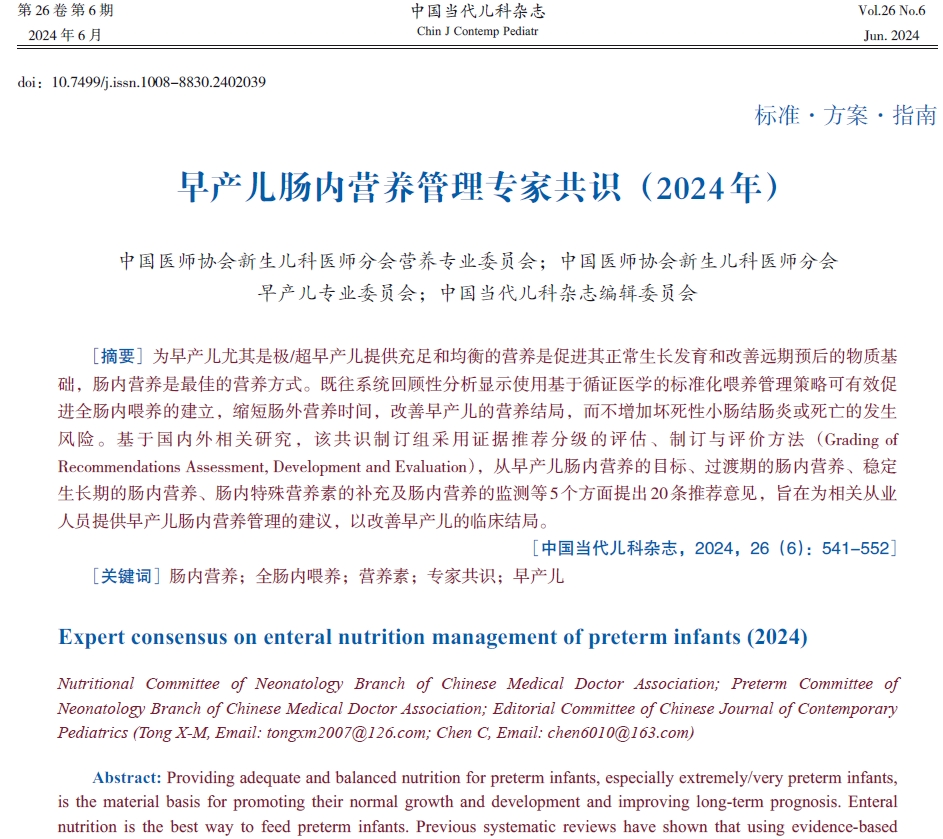 PDF(721 KB)
PDF(721 KB)


早产儿肠内营养管理专家共识(2024年)
中国医师协会新生儿科医师分会营养专业委员会;中国医师协会新生儿科医师分会早产儿专业委员会;中国当代儿科杂志编辑委员会
中国当代儿科杂志 ›› 2024, Vol. 26 ›› Issue (6) : 541-552.
 PDF(721 KB)
PDF(721 KB)
 PDF(721 KB)
PDF(721 KB)
早产儿肠内营养管理专家共识(2024年)
Expert consensus on enteral nutrition management of preterm infants (2024)

肠内营养 / 全肠内喂养 / 营养素 / 专家共识 / 早产儿
Enteral nutrition / Total enteral feeding / Nutrient / Expert consensus / Preterm infant